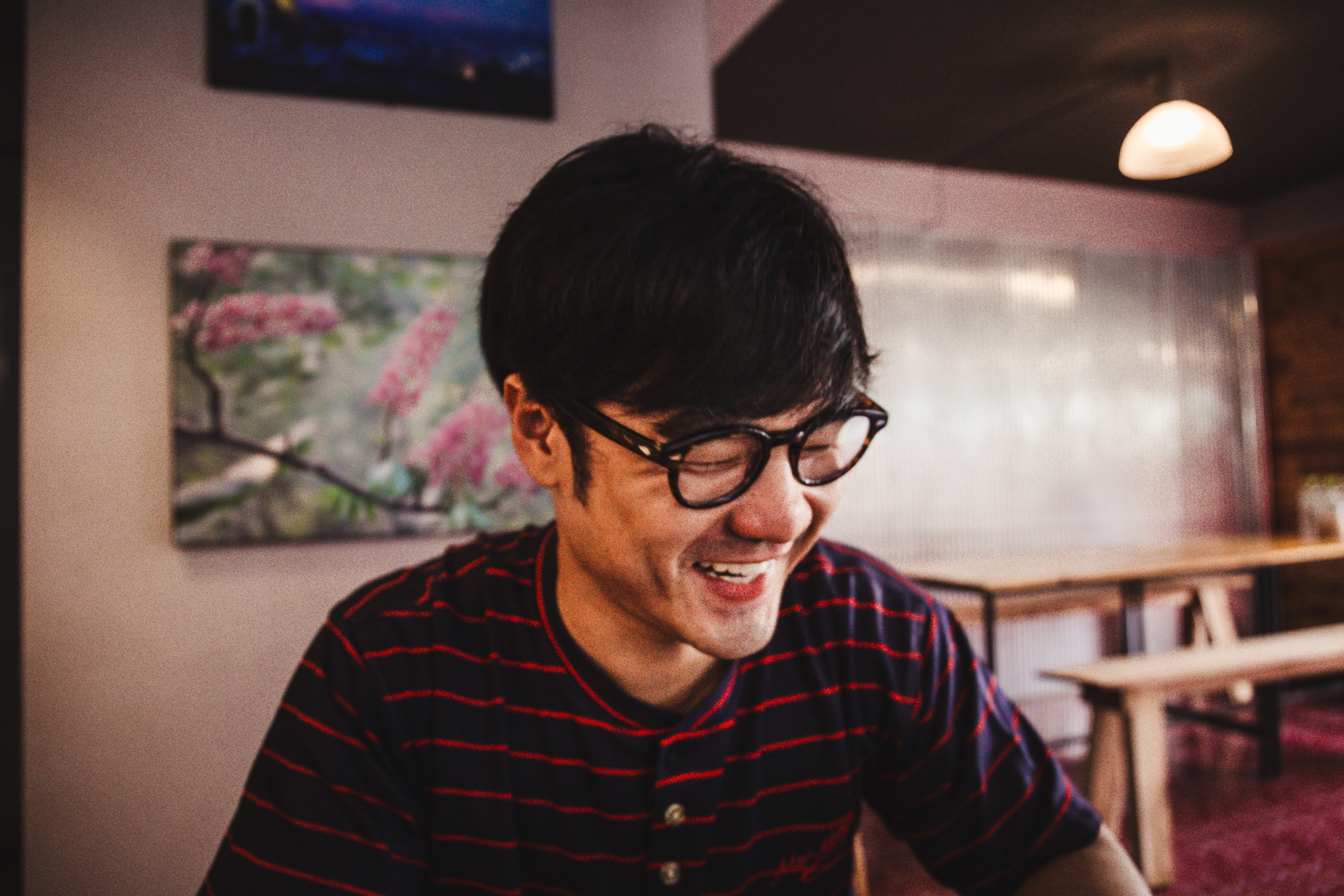anxiety
COUNSELING
Sound Familiar?
Sarah is a vibrant young woman living in Pacific Beach with her roomates and dog! Sarah has always been known for her bubbly personality, but lately, she’s been struggling with overwhelming anxiety. Every time she steps out of her comfort zone, her heart races, palms sweat, and her mind becomes clouded with worry. Simple tasks, like attending social gatherings or giving presentations at work, have become daunting challenges. Sarah finds herself questioning whether she should seek help to regain control of her life and happiness.
Jaime is a hardworking professional living in downtown San Diego. For as long as he can remember, James has battled anxiety that seems to have magnified over time. He constantly finds himself fixating on worst-case scenarios and plays out catastrophic outcomes in his mind. This mental anguish affects his daily interactions and relationships, to the point where he often feels isolated and misunderstood. James, like Sarah, contemplates seeking help and wonders if therapy is the answer his life needs.
Melissa is a student living in Encinitas who experiences intense anxiety related to academic performance. She still lives at home with her parents, and that’s one factor that contributes to her feelings of anxiety — she believes she ought to be further along than she is and out of their house. Also, despite her dedication and hard work, she constantly doubts her abilities and fears failure more globally (not just about her living situation). This fear intensifies as important exams and deadlines approach, causing her sleepless nights and an endless cycle of self-doubt. Melissa is on the precipice of considering therapy as a way to free herself from the grip of anxiety that threatens to derail her academic journey.
Understanding Anxiety
Anxiety is a natural human emotion that serves a vital purpose – to protect us from potential dangers and alert us to potential risks. However, when anxiety becomes excessive and interferes with our daily functioning, it transforms into a problematic anxiety disorder. Unlike other emotions such as stress or fear, anxiety persists over an extended period, often persisting beyond the triggering event.
 Common Misconceptions About Anxiety
Common Misconceptions About Anxiety
Anxiety often carries with it a cloud of misconceptions and misunderstood notions. These misconceptions can create a barrier to seeking help and receiving proper support. By debunking these misconceptions, it becomes easier to understand anxiety as a genuine and valid experience that many individuals face. Here are some common misconceptions about anxiety:
- Anxiety is just being overly worried or stressed.
One of the most prevalent misconceptions is that anxiety is merely an exaggerated form of worry or stress. While anxiety is related to these emotions, it goes beyond normal levels and becomes persistent and overwhelming. Anxiety often arises without any specific triggers and can interfere with daily life, relationships, and overall well-being. It is not a simple matter of “calming down” or “thinking positively” but rather a complex condition that requires compassionate understanding and effective coping strategies. - Anxiety is a sign of weakness or lack of character.
Another misconception is that anxiety is a personal flaw or a sign of weakness. This belief can lead to self-judgment and shame, making it even more challenging for individuals to seek help. However, anxiety is not a choice or a reflection of one’s strength or character. It is a legitimate mental health condition that affects people from all walks of life. Understanding anxiety as a medical condition rather than a personal failing promotes empathy and encourages individuals to seek appropriate treatment. - People with anxiety should just “get over it.”
It is important to understand that anxiety cannot be overcome simply by “toughening up” or “getting over it.” Anxiety disorders are complex conditions that require professional intervention and support. Suggesting that someone with anxiety should “just relax” or “snap out of it” oversimplifies the experience and minimizes the challenges faced by those living with anxiety. Acknowledging the severity of anxiety and supporting individuals in seeking help can make a significant difference in their journey towards recovery. - Medication is the only solution for anxiety.
While medication can play a crucial role in managing anxiety symptoms for some individuals, it is not the only solution. Anxiety disorders are often best addressed through a comprehensive treatment approach that may include therapy, lifestyle changes, and self-care practices. Therapy, such as cognitive-behavioral therapy (CBT), can provide individuals with effective coping mechanisms and skills to manage anxiety. Medication can be a helpful adjunct to therapy but is not the sole solution. - Everyone experiences anxiety the same way.
Another myth surrounding anxiety is that everyone experiences it in the same way. In reality, anxiety presents itself differently for each person. Symptoms may range from physical manifestations, such as rapid heartbeat and sweating, to psychological signs, such as intrusive thoughts and feelings of impending doom. The intensity and duration of anxiety can also vary from person to person. Recognizing the unique nature of anxiety experiences helps in understanding and empathizing with individuals facing this condition.
By challenging these misconceptions and promoting accurate understanding, we can create a more supportive environment for those living with anxiety. Remember, anxiety is a legitimate condition that deserves compassion, understanding, and proper treatment. Encouraging open dialogues about mental health and fostering an environment free from judgment can help individuals feel empowered to seek the help they need, leading to improved outcomes and greater overall well-being.
 Common Strategies to Manage Anxiety:
Common Strategies to Manage Anxiety:
According to popular research, there are several effective steps that individuals can take to improve their anxiety symptoms and enhance their overall well-being. While it’s important to note that each person’s journey is unique, these steps have shown promise in helping many individuals manage and overcome their anxiety. Here are some of the most successful steps:
- Practicing Mindfulness and Meditation: Mindfulness and meditation practices have shown significant benefits in reducing anxiety symptoms. Mindfulness involves intentionally bringing one’s attention to the present moment without judgment, which helps individuals become more aware of their anxious thoughts and emotions. This increased awareness allows individuals to respond to anxiety triggers with greater clarity and control. Meditation, on the other hand, aims to calm the mind and relax the body, promoting a state of inner peace and reducing stress levels.
- Adopting Healthy Lifestyle Habits: Research indicates that adopting healthy lifestyle habits can have a positive impact on anxiety symptoms. Engaging in regular physical exercise, such as aerobic activities or yoga, can help reduce stress levels and increase the production of endorphins – natural mood-boosting chemicals in the brain. Prioritizing sufficient sleep and practicing good sleep hygiene can also improve anxiety symptoms by promoting restful sleep and enhancing overall well-being. Additionally, maintaining a balanced diet and minimizing the consumption of caffeine, alcohol, and processed foods can positively influence anxiety levels.
- Building a Supportive Social Network: Strong social support has been shown to be a crucial factor in managing anxiety. Having a network of supportive friends, family, or peers can provide a sense of safety and reassurance, helping individuals navigate challenging situations. It’s important to surround oneself with accepting and understanding individuals who can offer empathy, encouragement, and practical help when needed. Joining support groups, either in-person or online, can connect individuals with others who share similar experiences, providing a platform for discussing anxiety-related challenges and strategies for coping.
- Utilizing Relaxation Techniques & Self-Care: Practicing relaxation techniques, such as deep breathing exercises, progressive muscle relaxation, or guided imagery, can help individuals induce a state of calmness and reduce anxiety symptoms. Deep breathing exercises involve taking slow, deep breaths, which promotes relaxation by activating the body’s relaxation response. Progressive muscle relaxation entails systematically tensing and then relaxing different muscle groups, helping release physical tension associated with anxiety. Guided imagery utilizes visualization techniques to create calming mental images and redirect anxious thoughts. Likewise, self-care activities, tailored to one’s interests and preferences, can significantly reduce anxiety levels. Engaging in activities that bring joy, relaxation, and satisfaction can provide a much-needed respite from anxious thoughts and emotions. Examples include hobbies, such as painting, gardening, or playing a musical instrument, as well as activities promoting self-reflection and self-expression, such as journaling or practicing gratitude. Taking breaks, establishing boundaries, and prioritizing self-care can help individuals replenish their energy and build resilience in the face of anxiety. However, while these are all great, one of the best ways to conceptualize “self-care” is to work on creating a life you don’t hate. All the painting and gardening in the world won’t fix a life you want to escape.
- Education: Acquiring knowledge and understanding about anxiety is pivotal in managing and overcoming it effectively. Researching reliable sources, reading books, or attending educational workshops can empower individuals with accurate information about anxiety disorders. Understanding the neurobiology behind anxiety, recognizing common symptoms, and learning about evidence-based treatment options can normalize the experience and reduce stigmatization. Educating oneself also enables individuals to actively participate in their treatment journey and make informed decisions about their mental health.
- Reducing Avoidance and Facing Fears: Avoidance of anxiety-provoking situations or triggers can unintentionally reinforce anxiety and prolong its impact. Gradually confronting feared situations or triggers through exposure therapy allows individuals to learn that their anxious thoughts and feelings do not accurately predict danger or harm. Gradual exposure helps retrain the brain to respond differently to these situations, leading to a reduction in anxiety symptoms over time. While it may be uncomfortable, facing fears under the guidance of a mental health professional can ultimately lead to a sense of empowerment and increased resilience.
- Get Help: Research consistently highlights the importance of seeking professional help as a primary step in managing anxiety. Mental health professionals, such as therapists or counselors, can provide valuable guidance and support. Cognitive-behavioral therapy (CBT), in particular, has demonstrated effectiveness in treating anxiety disorders. CBT helps individuals identify and challenge negative thinking patterns, develop effective coping mechanisms, and gradually face their fears through exposure therapy.
Need some guidance with all of these? We can help!
At Juxta, California counseling, we are aren’t just expert counselors – we’re people too, which means you can expect us to be genuinely interested in you, your story, and your life. We want to get to know the real you. In our work together, honesty with yourself and us comes to characterize the entire healing endeavor. Thus, our relationship itself — that is the work.
There’s nothing else you need to do to prepare. There’s no reason to wait any longer.
Looking for Counseling for Anxiety?
Reach out today!
Call Us
(858) 227-7719
close. nearby.
alongside.
Location
San Diego, CA
Phone
(858) 227-7719
contact@juxtacalifornia.com

